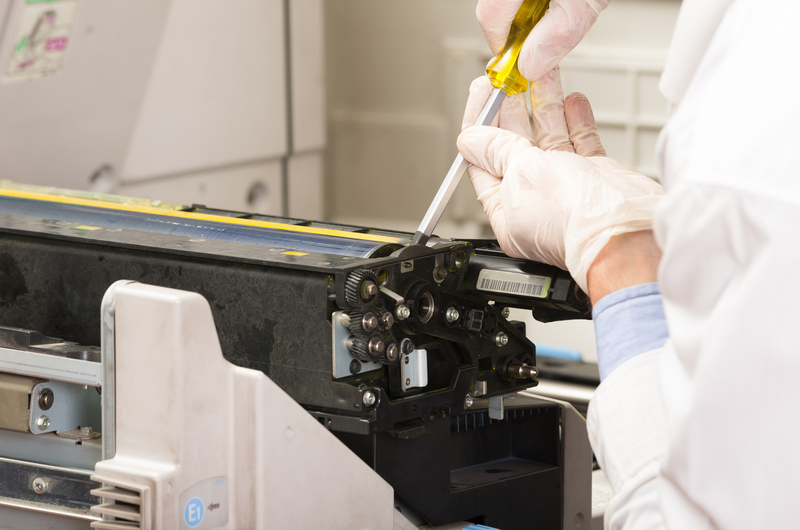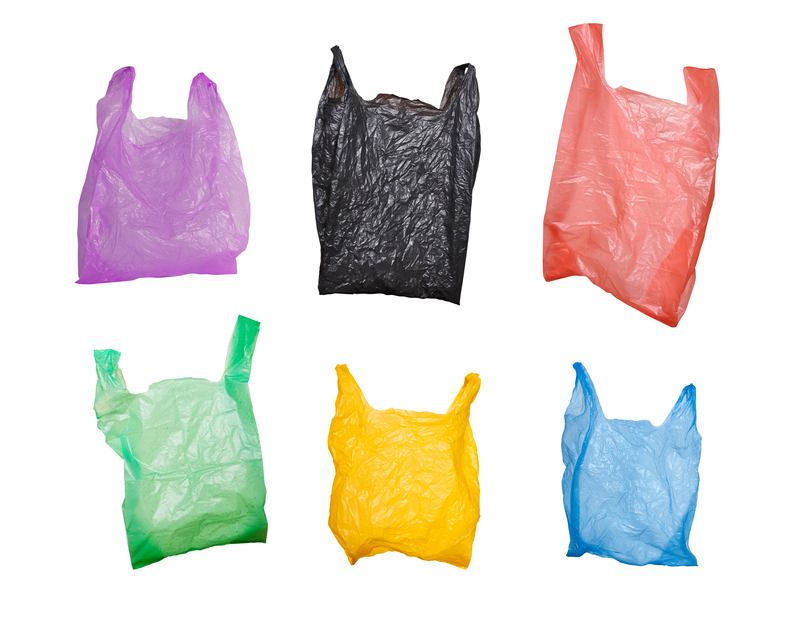Protect Wildlife by Properly Disposing of PPE Waste
The rise in the use of personal protective equipment (PPE) has brought unforeseen challenges, particularly for our planet's wildlife. While PPE is essential for human safety, improper disposal of masks, gloves, and sanitizing wipes is now posing a significant threat to animals and ecosystems across the globe. To ensure the well-being of both people and wildlife, it is crucial to adopt responsible PPE waste management practices.

Understanding the Impact of PPE Waste on Wildlife
What is PPE Waste?
PPE, or personal protective equipment, encompasses items like surgical masks, gloves, face shields, and disposable gowns. The mass production and ubiquitous use of PPE, especially since the COVID-19 pandemic, has led to a dramatic increase in single-use plastic waste.
Why Improper PPE Disposal is a Threat to Wildlife
Many PPE materials are made of non-biodegradable plastics such as polypropylene and polyethylene. When masks, gloves, and other items are discarded irresponsibly, they frequently end up in natural habitats, posing severe risks to both land and marine animals.
- Entanglement: Animals can become entangled in the ear loops of masks or the fingers of gloves, leading to injury, strangulation, or even death.
- Ingestion: Animals might mistake small, colorful pieces of PPE for food. Ingesting these plastics can block digestion and cause malnutrition or internal injuries.
- Chemical Leaching: Over time, abandoned PPE can release harmful chemicals into the environment, contaminating soil and waterways and affecting entire ecosystems.
- Microplastic Pollution: As PPE materials break down, they become microplastics. These tiny particles are ingested by a range of creatures, which can disrupt food chains and have long-lasting environmental impacts.
The Scope of the PPE Waste Problem
Staggering PPE Waste Statistics
According to the United Nations Environment Programme, an estimated 75% of used masks and other pandemic-related waste ends up in landfills or the environment. That equates to billions of PPE items being littered globally each month!
- Over 1.5 billion masks were estimated to have entered the world's oceans in 2020 alone.
- Wildlife organizations report a sharp increase in animal rescue cases linked to PPE entanglement and ingestion.
- PPE is now regularly found in the stomachs of dead seabirds, turtles, and marine mammals.
This mounting pollution is a reminder that proper PPE disposal is needed more urgently than ever to buffer our planet's delicate wildlife.
How Improperly Disposed PPE Harms Different Wildlife Species
Examples from Around the World
- Seabirds: Many seabird species have been found dead with fragments of masks and gloves inside their stomachs. Birds often confuse PPE for prey, leading to blocked digestive tracts.
- Marine Mammals: Seals and dolphins can become entangled in mask straps, causing severe injuries or drowning.
- Terrestrial Animals: Foxes, hedgehogs, and small mammals are also prone to getting trapped by gloves and masks, impairing their mobility and ability to forage.
- Reptiles and Amphibians: Land-dwelling reptiles like turtles are frequently found caught in discarded PPE or ingesting plastic pieces, often with fatal consequences.
Real-Life Wildlife Stories
Earlier this year, a hedgehog in England was found with a disposable glove wrapped tightly around its neck. Thanks to quick action from local wildlife rescuers, the animal survived. In the US, a pelican was rescued after being entangled in a mask that had washed up on the shore. These stories underscore the urgent need for all of us to take responsibility and stop PPE pollution at the source.
Best Practices for Properly Disposing of PPE Waste
Simple Steps to Dispose of PPE Responsibly
Protecting wildlife by disposing of PPE waste properly is straightforward and can be easily incorporated into our daily routines. Follow these essential steps:
- Never litter PPE in public places, parks, or natural areas. Always use designated waste bins.
- Cut the ear loops and straps off face masks and gloves before disposal. This helps prevent animals from becoming entangled.
- Bag used PPE properly (double-bagging is recommended for contaminated items) before placing them in the trash to minimize the risk of exposure and dispersal.
- Avoid flushing masks, gloves, or wipes down toilets. These items can clog wastewater systems and eventually pollute rivers and oceans.
- Use reusable PPE whenever possible, such as washable cloth masks, to reduce overall waste production.
Guidelines from Environmental Authorities
Many environmental agencies and health organizations have issued specific guidance for safe PPE disposal:
- The Centers for Disease Control and Prevention (CDC) recommends placing used PPE in lined trash cans and not recycling contaminated items.
- The World Health Organization (WHO) advises double-bagging PPE in securely tied bags to prevent potential disease transmission.
- Local waste management services may offer designated collection points for PPE waste. Check your municipality's website for details.
The Role of Individuals and Communities
How You Can Make a Difference
Every action counts when it comes to reducing PPE pollution and protecting wildlife. Consider adopting these strategies:
- Organize PPE waste collection drives in your neighborhood or local parks.
- Educate family and friends about the importance of responsible PPE disposal.
- Support organizations that help rescue wildlife affected by PPE waste.
- Share posts on social media highlighting the dangers of improper PPE disposal and how to prevent it.
The Power of Social Responsibility
When communities unite for a common cause, the impact is tremendous. Local governments, schools, businesses, and households can work together to set up dedicated PPE disposal bins and promote awareness campaigns. This proactive, community-level approach ensures that fewer PPE items end up harming wildlife.
Businesses and PPE Waste Management
PPE Disposal Policies for Workplaces
As employers provide PPE to their staff, they should also put clear waste management protocols in place:
- Place labeled PPE disposal bins in convenient locations, especially at entrance/exit points.
- Provide instructions for staff on cutting mask loops and double-bagging used materials.
- Arrange regular disposal and cleaning of bins so they do not overflow or attract wildlife.
- Conduct training and awareness sessions about the environmental impacts of PPE waste.
Corporate Responsibility and Policy
Many companies have launched sustainability programs focused on reducing PPE waste by introducing eco-friendly alternatives, offering incentives for reusable PPE, or partnering with recycling companies for proper disposal. These initiatives not only protect wildlife but also enhance a company's green reputation.
Innovations and Alternatives: Rethinking PPE for Wildlife Protection
Eco-Friendly PPE Solutions
Addressing the PPE waste crisis requires innovation and a shift in consumer behavior. Several promising approaches are emerging:
- Biodegradable PPE: Some manufacturers are now offering masks and gloves made from plant-based materials, designed to break down more quickly in the environment.
- Reusable PPE: High-quality, washable face coverings and gloves significantly cut down on the amount of single-use waste generated.
- PPE Recycling Programs: Specialized programs, like those offered by TerraCycle, collect used masks and turn them into infrastructure products such as benches or shipping pallets.
Public Policy and Environmental Advocacy
Governments and NGOs worldwide are beginning to recognize the dangers that PPE waste poses to wildlife. Some actions being taken include:
- Strengthening regulations on PPE waste disposal and littering.
- Funding research into biodegradable and recyclable PPE products.
- Launching public awareness drives about wildlife protection and responsible waste management.
Educational Initiatives: Raising Awareness on PPE Waste Disposal
Programs for Schools And Youth Groups
The next generation plays a vital role in wildlife conservation. Educational institutions can integrate information about PPE pollution into science and sustainability curricula.
- Hands-on clean-up campaigns: Involve students in local PPE litter pick-up events to demonstrate the real-world impact.
- Classroom discussions: Teach the link between personal responsibility, plastic pollution, and animal welfare.
- Creative projects: Encourage students to develop posters, videos, or social media content promoting proper PPE waste disposal.
Leveraging Media for Environmental Action
News outlets, websites, and influencers can play a crucial role in spreading the message about the dangers of improper PPE disposal. The more people become aware of the wildlife implications, the greater our collective ability to respond and adapt.

Long-Term Solutions for PPE Waste and Wildlife Protection
Developing a Circular Economy Approach
Building a future without PPE pollution requires a shift to a circular economy, where products are designed for reuse, repair, and recycling. This transition will:
- Reduce demand for single-use PPE products that endanger wildlife.
- Encourage the development of closed-loop recycling programs for used protective gear.
- Minimize plastic pollution by prioritizing sustainable materials and manufacturing processes.
The Importance of International Collaboration
Wildlife knows no borders, and neither does plastic pollution. As PPE waste flows across rivers and oceans, it affects animals and habitats far from the original source. To truly protect wildlife through responsible PPE waste disposal, global cooperation, shared standards, and technology transfer are essential.
Summary: Saving Wildlife Starts with You
The ongoing pandemic has highlighted the importance of PPE for public health. However, unless we all take personal and collective responsibility for the proper disposal of PPE waste, animals and ecosystems will pay a steep price.
Each mask, glove, or wipe that you dispose of correctly is a step toward a safer environment for wildlife. Cut loops, bag PPE properly, avoid littering, and educate others--your actions matter.
- Remember: Protecting wildlife starts with simple, mindful waste disposal habits.
- Spread the word: Encourage others to join efforts to prevent PPE pollution.
- Support innovation: Choose sustainable PPE options whenever available.
By coming together as communities, businesses, and consumers, we can make a profound difference--keeping nature safe, clean, and thriving for generations to come. Make the pledge today: Protect wildlife by properly disposing of PPE waste.